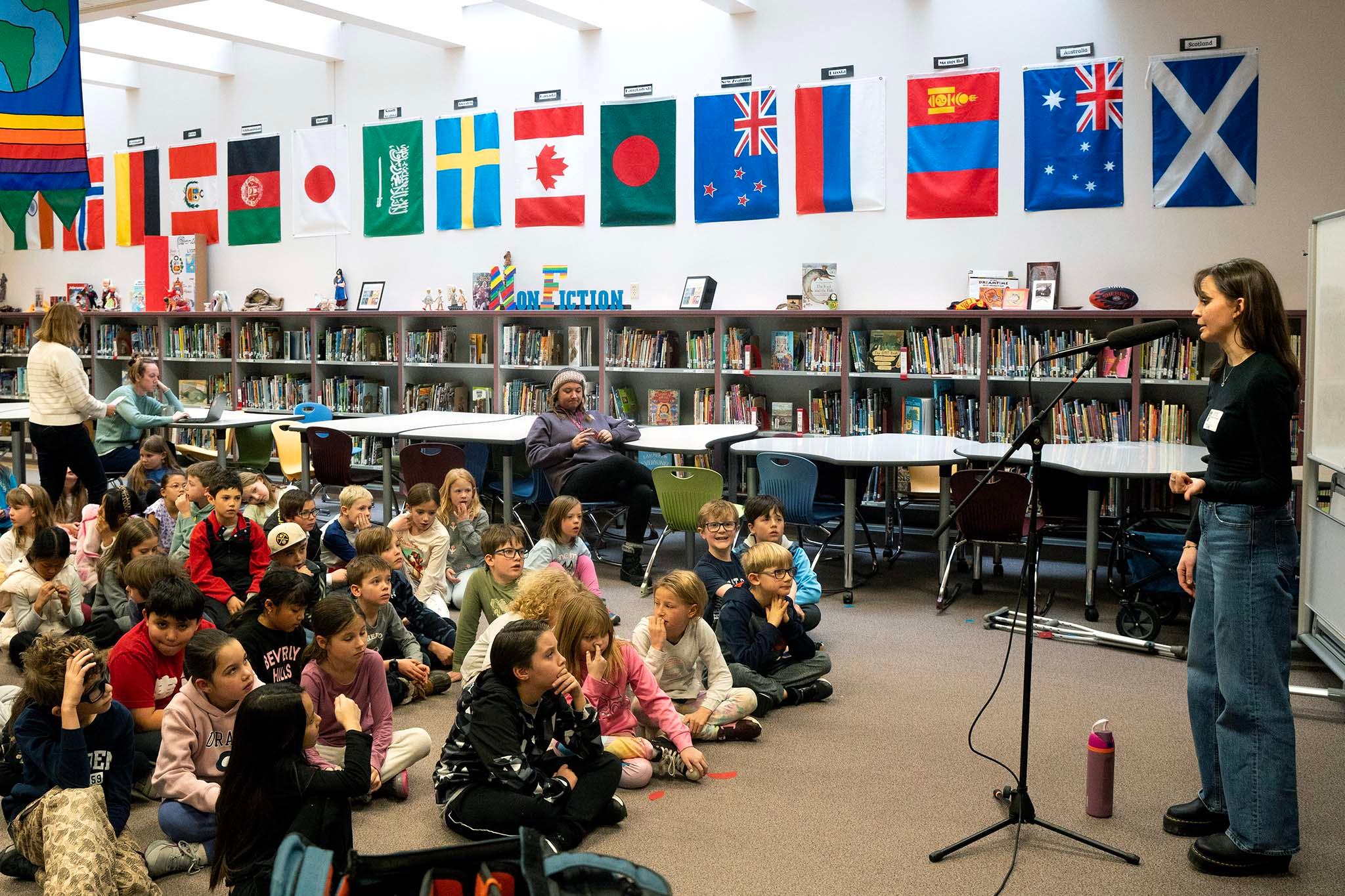Next Monday state lawmakers consider the question of whether third graders should be held back if they fail their reading tests. A proposed bill would push schools harder to start earlier with kids to get them reading by third grade. But if they can’t read well enough, they could be held back. Colorado Public Radio’s education reporter Jenny Brundin reports.
Damon: Mel – Mel - I can’t say the dog’s name.
Teacher: Let’s look at the parts of the word and see if that helps us.
Reporter Jenny Brundin: Damon and three of his third-grade classmates are sitting together for their second dose of reading today with a reading specialist.
Damon: Mellie.
Teacher: Mellie.
Reporter: She teaches them to break apart words, take a breath when there’s a comma, and discover what it means when a word is in bold. The teacher asks them lots of questions to see if they understand what they’re reading. They spend time predicting what might happen in a story….and clapping out syllables.
Kids and Teacher: Ter-ri-er!
Teacher: Three syllables. So that’s a tricky word we can take apart.
Reporter: These third-graders are already a couple of years behind in reading. And there are thousands like them in Colorado.
Lisa Soumi: Every year could put 17,000 third graders – which would fill the Pepsi Center in Colorado, with kids who are not reading at grade level.
Reporter: Lisa Soumi is a 7th grade reading specialist and she sees every day what happens when kids leave third grade still unable to read. That’s why she’s throwing her support behind a bill that would improve reading assessments and interventions for children before third grade.
Soumi: Really, I want this bill to eliminate my job in the future (laugh).
Reporter: While many early grade teachers say they are doing everything in their power to advance reading skills – a middle school teacher like Lisa Soumi believes there must be some cracks in the system.
Soumi: To see a kid who can literally verbalize to me, this is the very first time I have ever learned how to read, this is the only class I have ever taken that has helped me learn to read…and to see that kid in eighth grade, almost at grade level….
Reporter : --means, she says, the bill is needed. House Bill 1238 requires teachers and parents to set up a reading plan for kids in Kindergarten through third grades. If a student is still behind at the end of the school year, the bill recommends holding them back. Now, a parent can object at the lower grades. But by 3rd grade, if a child is still lagging at the end of the year, they’ll be held back unless a district superintendent clears them to move on. State representative Millie Hamner, a former school superintendent, is a co-sponsor of the bill.
Millie Hamner: Students who don’t have the necessary reading skills by the time they’re in third grade are going to most likely struggle academically in all the rest of their ensuring grade levels and are more than likely not going to graduate from high school.
Reporter: That’s what studies show - if you can’t read by third grade you are four times more likely to drop out later. With stakes that high - why not mandate retention until a young student can read? It’s not so simple....schools know if you don’t retain these students, they may have trouble later, but they also know they could have other problems if you do hold them back. Here’s Weld County Superintendent Marty Foster, at a literacy forum last year.
Superintendent Marty Foster: There’s a real drop-back with just the social piece of retention, and shutting these kids down that we have to be very careful about, because they’ll turn off, completely.
Reporter : So, very few in the education community back the idea of mandatory retention. Jane Urschel is head of the Colorado Association of School Boards, which supports Hammer’s bill .
Jane Urschel: The secret is not making the child repeat the exact same program he or she had in that retention year but individualizing, now that what is costly, but we ought to be doing it.
Reporter: But even schools that are already doing most of what’s in the bill: rigorous screening, diagnosing and supporting kids starting in Kindergarten - they’re still seeing kids struggling in third grade, like Damon, who we met at the beginning of the story.
Damon: Ex….excer…exercise. Exercise!
Reporter:Damon’s reading specialist says what would be more helpful than retention is intense interventions and reading support in the summer.
Teacher: So that there isn’t that lag when they get back to school in August and all the gains they’ve made are lost so it’s a continuous cycle of working with the student to help them catch up.
Reporter: That takes lots of money. Even the bill sponsors admit the $4 million dollars attached to the bill won’t solve the problem. Bruce Caughey of the Colorado Association of School Executives points out that school districts are in their fourth year of significant cuts..
Bruce Caughey: And what we’d like to see is a real acknowledgement of making a change to a new system, is going to require software, training, it’s going to require interventions for students, and we’d like to do this very, very well.
Reporter : While many educators think the bill has the right intentions, everyone agrees to do it well, it’s going to take a lot more than $4 million dollars, and making kids into readers starts well before kindergarten, it starts as soon as the child first hears words.
[Photo: CPR]









